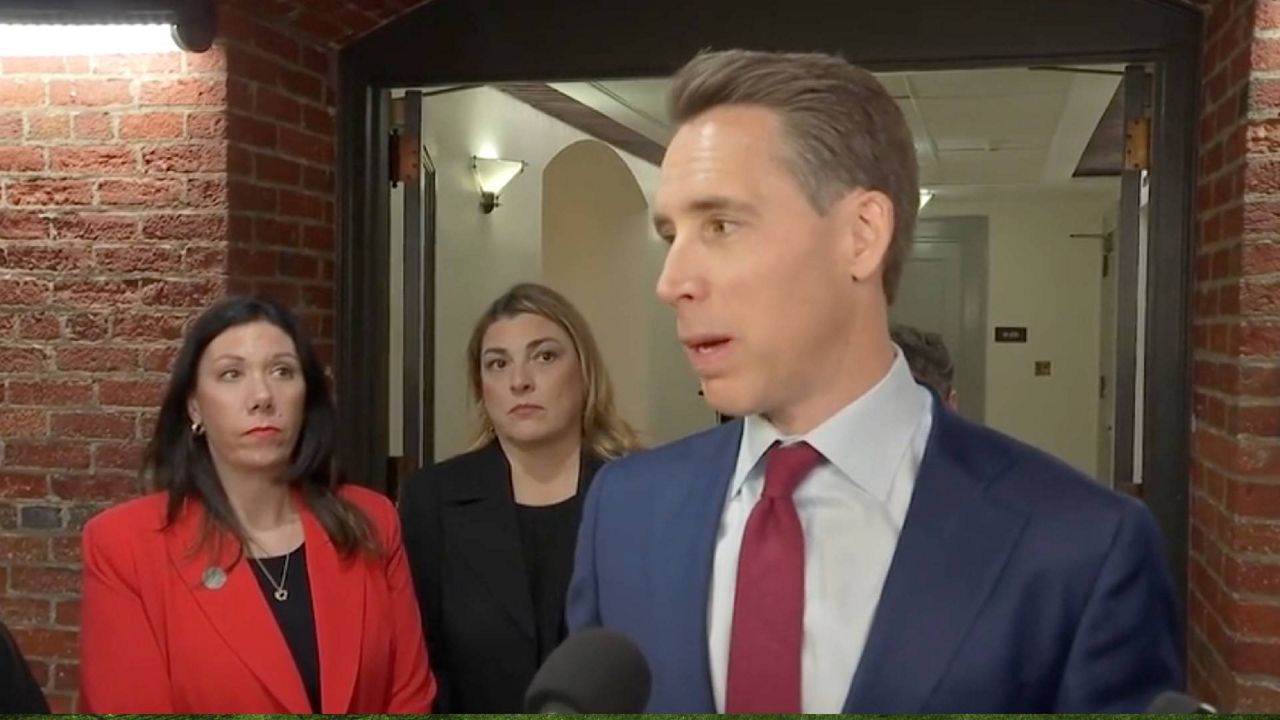WASHINGTON, D.C.—The United States Senate on Thursday passed a bill that would reauthorize a federal program that pays victims of nuclear radiation and expand it to include people connected to more than 20 St. Louis ZIP codes and residents in other states. The vote was 69-30. It now heads to the House.
The Radiation Exposure Compensation Act, sponsored by U.S. Sen. Josh Hawley, R-Mo. would extend for five years a program set to go dark on June 7. Since it’s inception in 1990. it has paid medical costs of more than 40,000 people, primarily in the western U.S. The expansion would add roughly 600,000 potential claimants in Missouri, Kentucky, Alaska and Tennessee along with Guam, Montana and Colorado.
It’s the second time the measure has passed the Senate. It made its way into the 2023 National Defense Authorization Act but was removed during negotiations with the House.
The White House signaled support for it Wednesday.
The U.S. Army Corps of Engineers says it could be 2038 before the Coldwater Creek watershed in St. Louis County is fully remediated after being contaminated for decades in the wake of the Manhattan Project and the Cold War nuclear arms race.
This week, crews are testing homes in the Cades Cove Drive area of Florissant after finding contamination underground leading to the foundation of some homes. Work is ongoing in the area of Coldwater Creek adjacent to the former Jana Elementary School property. The Hazelwood School District has said the school would not reopen after conflicting testing results sparked concerns about radioactive particles on the school property.
Testing from the Army Corps of Engineers and a lab hired by the school district said the school was radiologically safe. A firm hired by a class action attorney disagreed.
Hawley has sparred with his own party’s leadership on the bill, accusing Senate Minority Leader Mitch McConnell of taking the measure out of the NDAA as part of a “backroom deal”. The two spoke about the bill last week, Hawley said, a day after McConnell announced he would step down from his leadership post in November.
McConnell’s was the final “yes” vote read into the record Thursday. Among the 30 “no” votes were three members believed to be considering a run to replace him—South Dakota’s John Thune, Rick Scott of Florida and John Cornyn of Texas.
Advocates from St. Louis were in the audience in the Senate as the vote went down, including State Rep. Tricia Byrnes, R-Wentzville, and State Rep. Chantelle Nickson-Clark, D-Florissant, along with the co-founders of Just Moms STL, Karen Nickel and Dawn Chapman. Chapman will be Hawley's guest at Thursday night's State of the Union address.
“I lost my mother to breast cancer, an aunt to breast cancer. Two cousins that are breast cancer survivors, a nephew that had a cancerous brain tumor and other genetic mutation deficiencies in my family. I’m here to represent a community that has been underserved, undervalued, underrepresented and unheard,” Nickson-Clark said Thursday.
The taxpayer advocacy group Committee for a Responsible Federal Budget said that the legislation, which Hawley's office said should cost around $50 billion, should include budget offsets to pay for it.
“Compensation may very well be warranted for individuals harmed by the government’s nuclear activities, but the substantial deficit impact of the legislation is concerning and unnecessary,” the group said in a statement.
Hawley and other bill supporters have argued that the same sort of requirements haven't been suggested when it comes to foreign aid bills, including those for military assistance for Ukraine, Israel and Taiwan.



